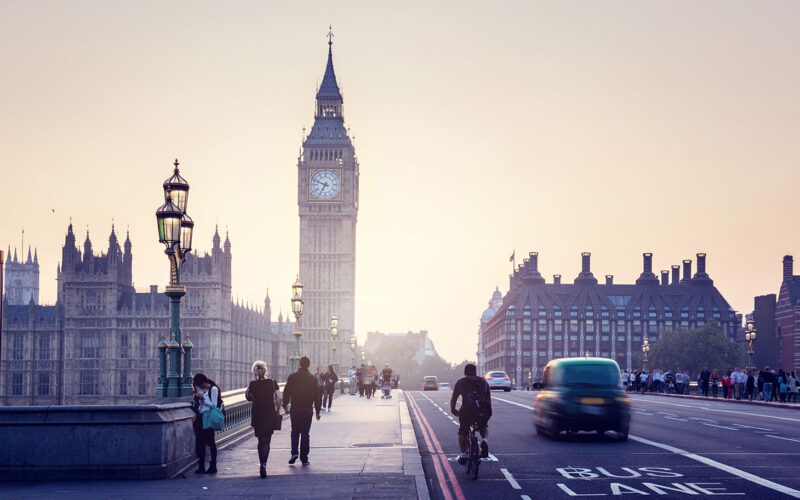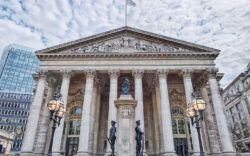Editor’s note: Have you seen this presentation yet? I recommend you do. That’s because it contains one of the most important alerts to come from The Fleet Street Letter team – a prediction that by the end of October, one announcement from Westminster could see your wealth at risk. We want to share with as many readers as possible just why – and how you could protect yourself. Just go here to find out more.
In today’s issue:
- The black hole bogeyman is fake
- The coming 40% tax on everything is real
- Who really governs the UK?
In July of 2020, I predicted that “Inflation is back, with a vengeance.” And explained, “Why inflation must get out of control,” as a deliberate policy act. Namely, “Inflation is the only way out of this much debt.”
My claim was simple. The UK was about to make use of the same 300 year old fiscal policy it used to pay off Napoleonic War debts and World War debts.
Inflation is a crucial part of that policy.
We also took a look at the consequences for investors. The focus of my report was on inflation’s impact on stocks. But here’s what I wrote about bonds:
Inflation’s effect on the bond market, where much of Britain’s pension assets are invested, is of course disastrous.
The only thing worse than cash during inflation is the promise to be paid cash in the future. “Bonds have once again become certificates of confiscation” claimed market historian Russell Napier recently.
All this proved prescient, to say the least. But now what?
This week, I’ll reveal the next phase of the plan to use inflation to cut the national debt. Because the first attempt didn’t work. At least, not in the UK.
But that’s about to change.
Which brings us to the radical change since Labour came into power. A radical change in the Labour Party, I mean…
Taxes on everything
The Express: “Move to cap tax-free pension lump sum to £100,000 could cost retirees more than £70,000,” and, “The Chancellor today declined to commit to not increasing inheritance tax or capital gains tax in October’s Budget.”
The Telegraph: “Fuel duty could be next tax grab for Labour,” and, “Wealth tax looms amid pressure from Labour’s union paymasters.”
The list of taxes goes on and on. Every day seems to add another “surprise” tax hike. Although I must admit I’m getting blurry vision between the same headlines flowing out of the US.
The mystery in all this is why Labour are doing it. What’s their motivation?
Labour aren’t exactly known for their fiscal prudence…
And didn’t they promise not to raise taxes?
The attempt to fill in a £22 billion “black hole” is a furphy. The Office for National Statistics points out why: “In the FYE March 2024, the public sector current budget deficit was £51.3 billion, £30.7 billion less than in the FYE March 2023.”
So £22 billion is part of the natural variation in the deficit and borrowing from year to year. It’s not quite a rounding error. But a future £22 billion hole is based on estimates of taxes, spending and GDP growth that are all going to be wrong by miles anyway.
Besides, the whole thing is absurd by its very nature. Governments don’t suddenly have a black hole. They borrow tens of billions more or less than expected all the time. The tax take and spending inherently fluctuates.
Say the government comes up £2 billion short in its crusade to fill the black hole. What happens?
They just borrow the difference.
The same for £22 billion.
It’s one big canard. But it does have a purpose.
The British public must be made to believe there is a giant budget black hole in order to distract from the real reason taxes are going up.
You see, the Labour government is under strict orders from its real masters…
The ones who actually control UK government economic policy.
This week, I’ll reveal who they are. But what investors should really be worried about is what their plans are.
Here’s an excerpt from my July 2024 report which explained all this to The Fleet Street Letter readers…
***
Proof of inflationary concept
You probably haven’t noticed, but countries across Southern Europe have absolutely crushed their national debts over the last two and a half years.
The purple segments of this chart show how various countries have reduced their debt to GDP ratio using inflation since the end of 2020. Inflation knocked almost 25% off Greece’s debt to GDP ratio, for example!
How did this happen? The European Central Bank kept interest rates incredibly low while inflation surged incredibly high. The value of investors’ assets were crushed. The government now owes the same amount of money, but money’s value has fallen.
The tactic we expect the Bank of England to use in the UK is working in places like Portugal, Cyprus, Greece and Spain.
The IMF estimated that countries cut their debt-to-GDP ratio by 0.6% of GDP for every percent of inflation they experienced. A 10% jump in prices gives you a 6% cut in debt to GDP, for example.
The typical advanced economy has cut its debt-to-GDP ratio by over 5% thanks to the inflation of 2022 alone. Oxford Economics estimates inflation cut UK debt to GDP by slightly more.
Unfortunately, most governments have also been spending like drunken sailors at the same time. Which negated the relief inflation provided. But, as Oxford Economics summed up, the increase in “debt-to-GDP would have been more than double but for inflation.” So inflation did make a difference.
For inflation to cut debt, like it did in Greece, central banks must also keep government spending under control. That’s why they must undermine any government that promises tax cuts or spending increases. Governments like Liz Truss’, the Italian government of 2018, the Greek government of 2015 and the likely future French and American government.
The hope is to achieve something similar to what Greece did recently – a whopping 25% cut in debt to GDP from inflation alone.
***
So, for the central bankers’ debt cutting plan to work, two things must happen. Inflation must be higher than interest rates on government debt, and deficits must remain low.
By raising taxes, Sir Keir Starmer is implementing his part of that plan. He knows Liz Truss’ fate awaits if he fails. So he has no choice.
You could almost feel sorry for the man. Imagine reaching your goal in life – becoming prime minister – only to discover someone else is dictating policy to you.
Find out who, later this week.
In the meanwhile, make sure you’re prepared for what is to come.
Until next time,

Nick Hubble
Editor, Fortune & Freedom




